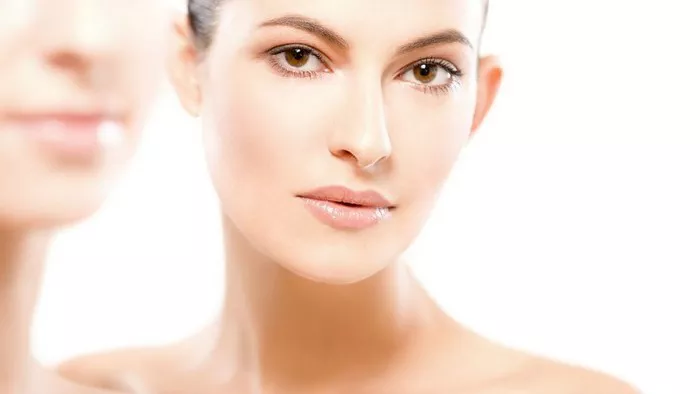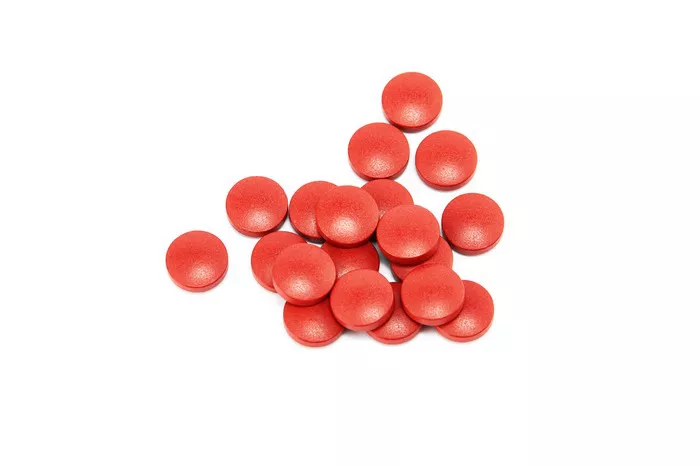Skin allergies are one of the most common complaints that bring people to dermatologists and alternative medicine practitioners alike. Itching, redness, rashes, swelling—these symptoms can make everyday life uncomfortable, if not unbearable. For millions suffering from eczema, hives, dermatitis, or contact allergies, finding long-term relief can feel like chasing a moving target. Amidst a variety of treatment options, homeopathy stands out as a controversial yet intriguing alternative. Some swear by its gentle, natural healing powers. Others dismiss it as pseudoscience. But can homeopathy actually cure skin allergies, or is it just a placebo wrapped in sugar pills?
To answer this question, we must first understand what homeopathy is, how it claims to work, and what scientific evidence says about its effectiveness. Then, we’ll explore how it applies to different types of skin allergies and whether it offers more than temporary relief. With increasing interest in holistic wellness, homeopathy’s promise of healing from the inside out deserves a closer look.
What Is Homeopathy and How Does It Work?
Homeopathy is a system of alternative medicine founded in the late 18th century by a German physician named Samuel Hahnemann. It operates on two core principles: “like cures like” and “minimum dose.” The first principle suggests that substances that cause symptoms in a healthy person can, when diluted, treat similar symptoms in a sick person. For example, onion causes watery eyes, so a diluted form of onion (Allium cepa) is used to treat allergies with watery eyes.
The second principle is where the controversy begins. Homeopathic remedies are often diluted to the point where the original substance may no longer be chemically detectable. Yet practitioners claim the water retains a “memory” of the substance and stimulates the body’s vital force to heal itself.
This process of dilution and shaking, known as potentization, is believed to increase the remedy’s effectiveness while eliminating toxicity. Remedies are typically given in the form of small sugar pills or drops, and treatment is highly individualized. Two people with similar symptoms might receive entirely different remedies depending on their overall health, emotions, and history.
The Link Between Skin and the Immune System
Skin allergies are essentially immune system overreactions. When the body misidentifies a harmless substance—like pollen, metals, cosmetics, or certain foods—as dangerous, it triggers an inflammatory response. This results in classic allergy symptoms: redness, itching, swelling, blistering, or dryness.
Conditions like eczema (atopic dermatitis), contact dermatitis, and urticaria (hives) are all categorized under skin allergies, though their causes and manifestations differ. While conventional medicine often relies on topical steroids, antihistamines, and immune suppressants, homeopathy approaches treatment from within. It seeks to balance the immune system so that it no longer sees harmless triggers as threats.
Homeopaths believe that skin problems often reflect deeper internal imbalances. Rather than merely suppressing symptoms, the goal is to stimulate the body’s natural healing mechanisms and resolve the underlying issues. In theory, once the root cause is addressed, the skin should clear on its own.
How Homeopathy Approaches Skin Allergies
A typical homeopathic consultation for skin allergies can last over an hour. The practitioner gathers detailed information about the allergy’s appearance, triggers, timing, and accompanying symptoms. They also explore emotional states, stress levels, digestion, sleep patterns, and past illnesses.
Based on this holistic profile, the practitioner selects a remedy from hundreds of options. Here are a few commonly used remedies for skin allergies:
Sulphur: Often prescribed for itchy, burning rashes that worsen with heat and bathing.
Graphites: Suited for oozing, crusty eczema, especially in the folds of the skin.
Rhus Toxicodendron: Helpful for blistering rashes and hives, particularly those that improve with movement and worsen with rest.
Apis Mellifica: Used for swollen, red, burning skin that feels better with cold applications.
Urtica Urens: Typically recommended for hives, especially those related to heat or shellfish.
However, homeopathy is not a one-size-fits-all system. The remedy must match not only the physical symptoms but also the person’s emotional and constitutional state. That’s why two patients with hives may receive entirely different remedies.
What Scientific Evidence Supports Homeopathy for Skin Allergies?
This is where the debate intensifies. Scientific studies on homeopathy are mixed, with many showing no effect beyond placebo and others reporting positive results. Critics argue that any benefits are due to the body’s natural healing response or the placebo effect, while supporters say mainstream science doesn’t yet have the tools to measure energetic healing.
A few small-scale studies have shown promise. For instance, a double-blind, placebo-controlled trial published in the journal Dermatology found that homeopathy significantly reduced the severity of eczema in children compared to placebo. Another study in Complementary Therapies in Medicine suggested that homeopathic treatment improved the quality of life in patients with chronic skin conditions like psoriasis and eczema.
However, these studies often suffer from limitations like small sample sizes, lack of replication, and subjective outcome measures. Major medical organizations such as the World Health Organization (WHO) and the National Institutes of Health (NIH) remain cautious or skeptical. They recommend using homeopathy as a complementary treatment rather than a replacement for conventional medicine.
Real-Life Success Stories: Placebo or Proof?
Despite limited scientific endorsement, anecdotal evidence is abundant. Many individuals with chronic skin allergies claim to have found lasting relief through homeopathy after years of failed treatments. These stories often involve personalized care, lifestyle adjustments, and consistent follow-up, which are hallmarks of homeopathic treatment.
Consider the case of a 10-year-old girl with severe eczema who had been on corticosteroids for years. After switching to homeopathy and receiving a tailored remedy, her flare-ups reportedly decreased significantly within three months. Over the course of a year, her skin cleared entirely, and she stopped using steroids altogether.
Is this a miracle or a coincidence? Critics might argue that skin allergies often go into remission on their own, and any improvement could be attributed to time, diet changes, or natural cycles. Supporters insist that homeopathy initiated the healing. Without large-scale studies, it’s hard to know for sure.
Risks and Considerations: Is Homeopathy Safe?
One of the most appealing aspects of homeopathy is its safety profile. Because the remedies are highly diluted, they are generally considered non-toxic and free from side effects. This makes them suitable even for infants, pregnant women, and the elderly.
However, the main risk lies in depending solely on homeopathy for serious or rapidly worsening conditions. Skin allergies that involve intense swelling, infections, or systemic reactions may require urgent medical care. Delaying conventional treatment in such cases could lead to complications.
For best results, homeopathy should be used under the guidance of a licensed or certified practitioner who understands when to refer patients for conventional care. It’s also crucial to maintain open communication with your dermatologist or primary physician if you’re integrating homeopathic remedies into your treatment plan.
The Emotional and Psychological Side of Skin Allergies
Skin conditions don’t just affect the body—they impact self-esteem, mood, and social interactions. The emotional toll of persistent itching, scarring, and visible rashes can lead to anxiety, depression, and even social withdrawal. Homeopaths often take these emotional factors into account, choosing remedies that soothe both the skin and the psyche.
For example, a person whose skin worsens under stress may be given a different remedy than someone who feels irritable or hopeless because of their symptoms. This mind-body connection is a key part of homeopathy’s philosophy and may contribute to its reported success in chronic skin cases.
In some instances, simply being heard and treated as a whole person—not just a skin condition—can have a healing effect. Whether this is due to the remedy or the therapeutic environment is difficult to measure, but both likely play a role.
Integrating Homeopathy With Lifestyle Changes
Homeopathy does not operate in isolation. Many practitioners recommend accompanying changes in diet, hydration, sleep, and stress management. Avoiding triggers such as allergens, harsh soaps, and processed foods can accelerate healing and prevent recurrence.
Foods rich in omega-3 fatty acids, antioxidants, and probiotics may also support skin health and reduce inflammation. Gentle skincare routines, using hypoallergenic products, and moisturizing regularly can further protect the skin barrier.
When combined with homeopathic treatment, these changes create a supportive environment for long-term recovery. Even skeptics agree that attention to lifestyle and environment is crucial in managing skin allergies.
So, Can Homeopathy Cure Skin Allergies?
The answer depends on how you define “cure.” If curing means eliminating symptoms permanently without recurrence, then the evidence is inconclusive. While many individuals report long-term improvement or resolution of symptoms, scientific studies haven’t consistently verified homeopathy’s effectiveness at that level.
However, if curing means improving symptoms, reducing flare-ups, and enhancing quality of life without side effects, then homeopathy shows real potential—especially for those who haven’t responded well to conventional treatments. The key lies in personalized care, consistent follow-up, and integration with healthy habits.
Ultimately, the decision to try homeopathy is a personal one. For those seeking natural, individualized care and who are open to exploring alternatives, homeopathy may offer not just hope, but healing.
Final Thoughts
Skin allergies are more than skin deep. They reflect the complex interactions between the body, mind, and environment. While conventional medicine focuses on symptom suppression, homeopathy offers a different path—one that aims to stimulate the body’s own healing power.
Although the scientific jury is still out, homeopathy’s gentle approach and passionate supporters suggest that it has a role to play in managing chronic skin allergies. Whether as a primary solution or a complementary tool, it’s worth considering as part of a broader strategy for healthier skin and a better life.
Related Topics



































